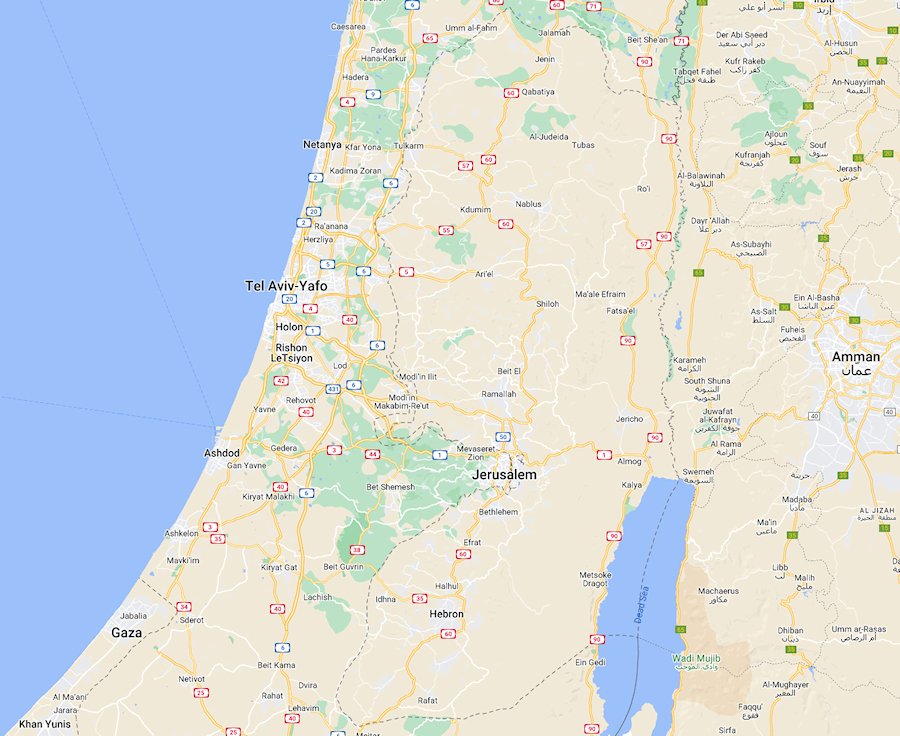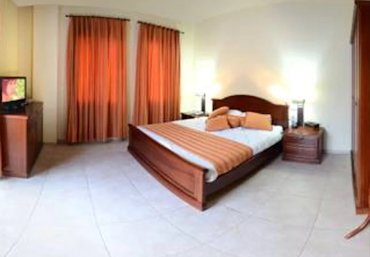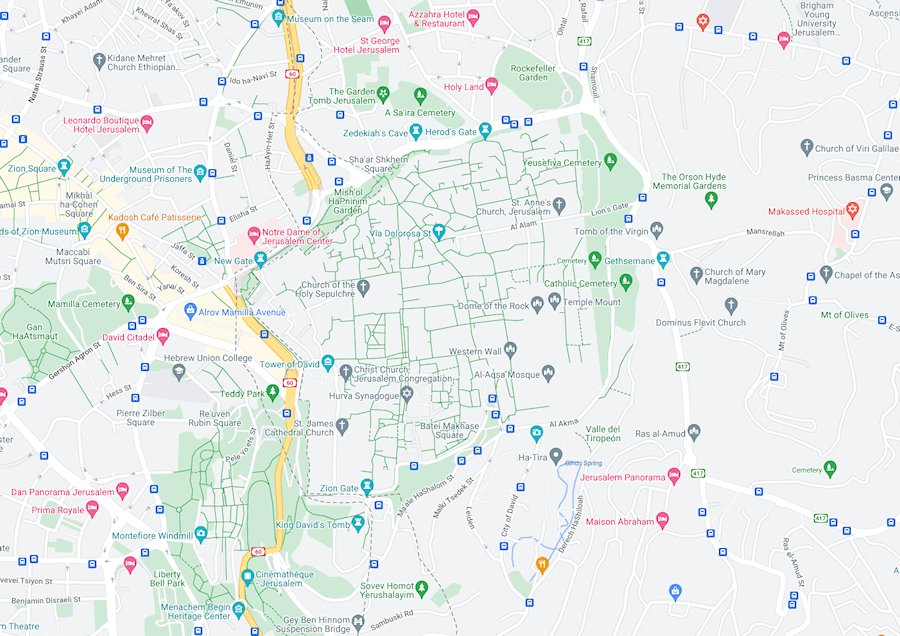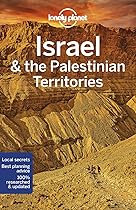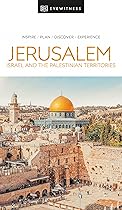Travel Notes: Middle East - Palestine Travel Notes.
Short URL: https://tnot.es/PS
Palestine Travel and Tourism on Travel Notes
Tourism in the West Bank, part of the Palestinian territories, offers a culturally rich experience for visitors despite the ongoing political situation in the region.
About The West Bank / Palestine
The Palestinian Territories of the West Bank and Gaza are still very much an appendix of Israel.
Even though the Israelis partly withdrew from the West Bank as part of the peace process, they are always liable to re-enter to restore order and establish security for the Jewish settlers still living there, or at least set up roadblocks and effectively cut off Palestinian communications.
As many Palestinians work as labourers in Israel, this hurts their pocket.
 Add a Business - Add a Location -
Add a Lodging - Add Travel Content
- Add URL
- Travel Services.
Add a Business - Add a Location -
Add a Lodging - Add Travel Content
- Add URL
- Travel Services.
Mapping The West Bank
Map of The West Bank
The West Bank is part of the larger territory known historically as Palestine.
The region holds significant religious, historical, and geopolitical importance, particularly to Jews, Muslims, and Christians.
West Bank Overview
The West Bank is a region located in the Middle East, bordered by Jordan to the east, and Israel to the north, west, and south.
The region remains a focal point of the Israeli-Palestinian conflict, with its future status subject to ongoing political, legal, and diplomatic debates.
Economic Challenges
The West Bank faces economic challenges, including high unemployment rates and limited economic opportunities.
The Israeli occupation, restrictions on movement, and the barrier have all contributed to these difficulties.
Historical Context
The West Bank was originally part of the British Mandate of Palestine, which was established after World War I.
Following the Arab-Israeli War of 1948, the region came under Jordanian control.
In the Six-Day War of 1967, Israel captured the West Bank from Jordan, along with the Gaza Strip, Sinai Peninsula, and Golan Heights.
Israeli Occupation
Since the Six-Day War, the West Bank has been under Israeli military occupation.
Israel maintains control over the area's borders, security, and many aspects of daily life.
This occupation has been a major source of tension and conflict in the region.
Palestinian Authority
In the 1990s, following the Oslo Accords, the West Bank was divided into three administrative divisions: Areas A, B, and C.
Area A is under full civil and security control of the Palestinian Authority (PA), Area B is under Palestinian civil control and joint Israeli-Palestinian security control, and Area C is under full Israeli control.
Political Status
The ultimate political status of the West Bank remains unresolved.
Palestinians aspire to establish an independent state in the West Bank and Gaza Strip with East Jerusalem as its capital.
However, negotiations between Israelis and Palestinians have stalled repeatedly, and efforts to reach a lasting peace agreement have been unsuccessful.
Security Barrier
In the early 2000s, Israel began constructing a security barrier, primarily a fence but also parts are wall, in and around the West Bank.
Israel says the barrier is necessary to prevent terrorist attacks, while Palestinians view it as a land grab and an obstacle to their freedom of movement.
Settlements
One of the most contentious issues in the West Bank is the presence of Israeli settlements.
These are civilian communities established by Israel in the territory it captured in 1967.
The international community considers Israeli settlements in the West Bank illegal under international law, though Israel disputes this.
The settlements have been a significant obstacle to peace negotiations between Israelis and Palestinians.
Tourism
Tourism in the West Bank offers a unique opportunity to explore ancient history, religious sites, and vibrant culture amidst a complex political landscape.
By exercising caution and respect for local customs, visitors can have a memorable and enlightening experience in this fascinating region.
Visiting The West Bank
Although tourists don't often go to Hebron, Nablus, or Ramallah, both Bethlehem and Jericho are in the West Bank.
The West Bank is home to a predominantly Palestinian population, with some Israeli settlements scattered throughout.
Tourism in the West Bank, which is part of the Palestinian territories, offers a unique and culturally rich experience for visitors despite the ongoing political situation in the region.
Travel to The West Bank
It's important to note that travel to the West Bank involves considerations of safety and political sensitivities.
The region has experienced conflict and tension for decades, and travellers should stay informed about the current situation and any travel advisories issued by their government.
Additionally, entry to certain areas may be restricted or require special permits.
If you plan to visit the West Bank, it is advisable to do thorough research, consider joining organised tours with reputable companies, and respect local customs and regulations.
Guided Tours
Joining a guided tour with a reputable operator can enhance the travel experience in the West Bank.
Local guides can provide valuable insights into the history, culture, and politics of the region while ensuring the safety and comfort of visitors.
Historical Significance
The West Bank has a rich history, with numerous sites of religious, historical, and cultural significance.
Places like Bethlehem, Jericho, Hebron, and Nablus attract tourists interested in exploring ancient ruins, religious landmarks, and vibrant markets.
Bethlehem
A significant destination for religious tourism, Bethlehem is revered as the birthplace of Jesus Christ.
Visitors can explore the Church of the Nativity, Manger Square, and other historical and religious sites.
Hebron
Despite its complex political situation, Hebron is home to the Cave of the Patriarchs, a site of religious significance for Jews, Christians, and Muslims.
The city's Old City, with its traditional markets and architecture, is also worth exploring.
Jericho
Known as one of the oldest continuously inhabited cities in the world, Jericho boasts archaeological sites such as the ancient Tel Jericho and Hisham's Palace.
The nearby Mount of Temptation, where Jesus is said to have been tempted by the devil, is also a popular attraction.
Nablus
Known for its historical sites, traditional soap factories, and delicious cuisine, Nablus offers a glimpse into Palestinian culture and daily life.
Nablus is the site of Jacob’s Well, where Jesus met the Samaritan woman who offered him a drink of water and believed in him.
Al Yasmeen Hotel, Nablus
Al Yasmeen Hotel was one of the first unique tourism investment projects, between Nablus Municipality and the privately owned Yasmeen Investment Company, aimed at revitalising and upgrading the tourism sector in Nablus.
The city's Old City is renowned for its well-preserved architecture and bustling markets.
Ramallah
As the de facto administrative capital of the Palestinian Authority, Ramallah offers a vibrant cultural scene with art galleries, museums, and markets.
Visitors can also explore the Yasser Arafat Museum and the tomb of Yasser Arafat.
Local Culture and Hospitality
Palestinian hospitality is legendary, and visitors can expect warm welcomes from locals.
Exploring the local culture, cuisine, and traditions can be a rewarding experience for travellers interested in gaining a deeper understanding of Palestinian life.
Safety Considerations
While tourism in the West Bank is generally safe, travellers should exercise caution and stay informed about the latest developments in the region.
It's advisable to avoid areas where there may be political tensions or security risks.
Palestine
The British drove the Ottoman Turks out of Palestine in 1917, and sowed the seeds of the Palestinian problem.
Under the British mandate of Palestine, 1922 to 1948, Jews came to settle in what they considered their homeland.
They mainly chose to make their homes along the Mediterranean coast, in Jerusalem itself, or around the Galilee region. The local Palestinian Arabs were also growing in numbers along the west bank of the River Jordan.
The Arabs rejected the Partition Plan, and attacked Israel following her declaration of independence, on May 15, 1948.
Jordan occupied the West Bank and East Jerusalem, and King Abdullah later merged all of Arab-held Palestine with Trans-Jordan, despite strong opposition from other Arab League members, and granted citizenship to West Bank residents.
In 1967, war broke out between Israel and her neighbours, Egypt and Syria. Jordan also entered the arena on the third day of the war.
Three days later it was all over. Israel had defeated the combined armies and took control of the Golan Heights from Syria, the Sinai Peninsula and the Gaza Strip from Egypt, and all of the West Bank from Jordan.
The River Jordan connects the Dead Sea with Lake Tiberius, or the Sea of Galilee, and a trip north from Jerusalem to Tiberius is often done along the Jordan.
The Jerusalem Fund
The Palestine Center is an independent educational program committed to communicating reliable and objective information about the Palestinian political experience to American policy makers, journalists, students, and the general public.
Established in 1991, it is the educational branch of The Jerusalem Fund.
Travel Palestine
Visitors to Palestine, the only place in the world considered Holy to Christians, Muslims and Jews, will encounter myriad religious, historical, and archaeological sites on their journey.
Beyond the historical, Palestine offers walks and hikes in its extensive valleys, along coasts, as well as desert hills, towns, and ancient marketplaces at the hearts of cities and villages nestled in the heart of breath-taking landscapes.
The Ministry of Tourism and Antiquities works with the private sector to create new packages under new themes including trails that cover unknown sites in Palestine and aims to develop social responsible tourism.
East Jerusalem
Map of East Jerusalem
The Palestinians claim East Jerusalem (Al-Quds) as their capital; the Mosque is behind the Western Wall.
It is also within the old city that you find most of the budget accommodation.
Gaza Strip
Perishable goods can be flown out of the territory to international markets, even when the Israelis set up roadblocks.
Palestine's Gaza International Airport (GZA) became operational in November 1998 and is located at Rafah, in southern Gaza Strip.
The opening of the Yasser Arafat International Airport, in the Gaza Strip, gave the Palestinians a greater sense of independence, even though Israel controls Gaza's airspace and Israeli security forces can close the airport at will.
Palestinian Airlines operates between Egypt, Jordan and Saudi Arabia.
Massada
Massada is famous for its hill top fortress near the Dead Sea; where visitors to the region can also float in the saline waters, or take a mud bath on its shores.
Towering 430 metres above the Dead Sea, Massada (Hebrew for fortress) is a boat-shaped, craggy mountain. Upon it one of the greatest epics in the history of mankind was played out.
Palestine Accommodation
Where to stay in Bethlehem, Gaza, Jerusalem, Nablus and Ramallah.
The Arab Hotel Association (AHA) is a non-profit, officially registered organization representing Palestinian hotels throughout the Holy Land and assisting other related tourism associations in Palestine.
AHA was established in Jerusalem in 1962 and currently has 82 members with well over 6,010 guest rooms.
The expanding role of the hotel industry in the Palestinian economy provides the AHA with many new challenges. Through restructuring planned process the current association includes hotels in Palestine under its umbrella ensuring decentralized representation through its four regions in Palestine. AHA will represent more than 100 members with more than 10,000 rooms.
West Bank Travel Guides
Weather in the Middle East:
Local weather forecasts for destinations around the Middle East.
More From Travel Notes
Travel Notes Online Guide to Travel
Africa - Asia - Caribbean - Europe - Middle East - North America - Oceania - South America.
The Travel Notes Online Guide to Travel helps visitors plan their trip with country and city travel guides, local tourist information, reviewed web sites, and inspiring travel content.
Travel and Tourism Guides on Travel Notes
If Travel Notes has helped you, please take a moment to like us on Facebook and share with your friends on social media.
Travel Resources
.
Travel & Tourism With Industry Professionals.







